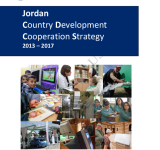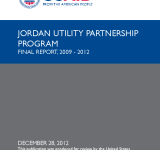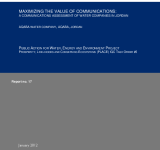Defining the goal as improved prosperity;; accountability and equality for a stable;; democratic Jordan;; the strategy report highlights a long-standing partnership between Jordan and the United States. Amidst a number of challenges;; Jordan continues to play a strategic ally in the region and therefore;; the report stresses the importance of assisting Jordan in carrying out its stated commitment to broad-based political and economic reforms. The three development objectives are 1. Broad-based;; inclusive economic development accelerated;; 2. Democratic accountability strengthened;; and 3. Essential services to the public improved;; with a special development objective of gender equality and female empowerment enhanced. According to the report;; the key theme of the strategy is complementing support for Jordanian-led structural reform with grassroots activities of more visible and more directly “felt” people-level impact. The development objectives find specific areas of focus that need the USAID investments and support.


